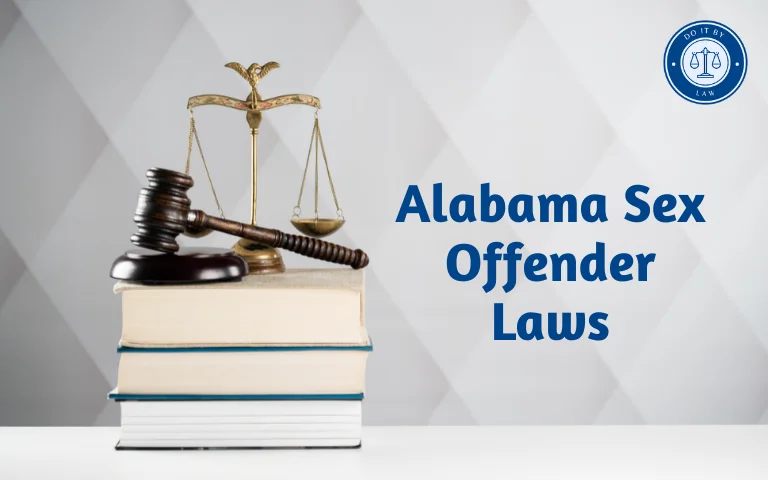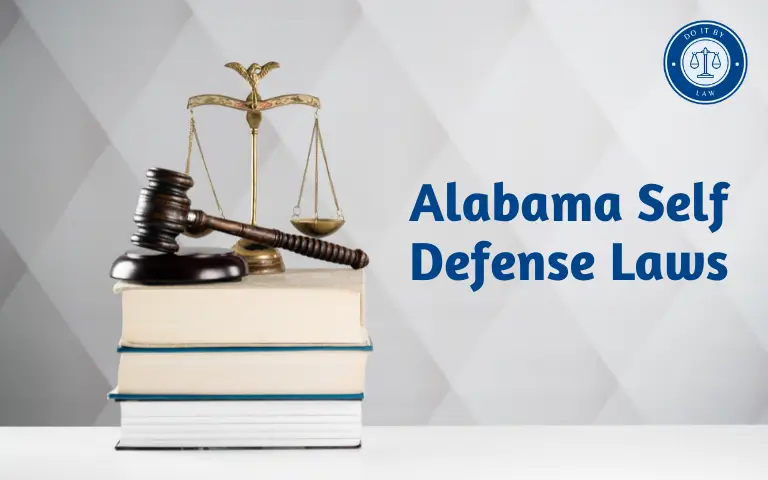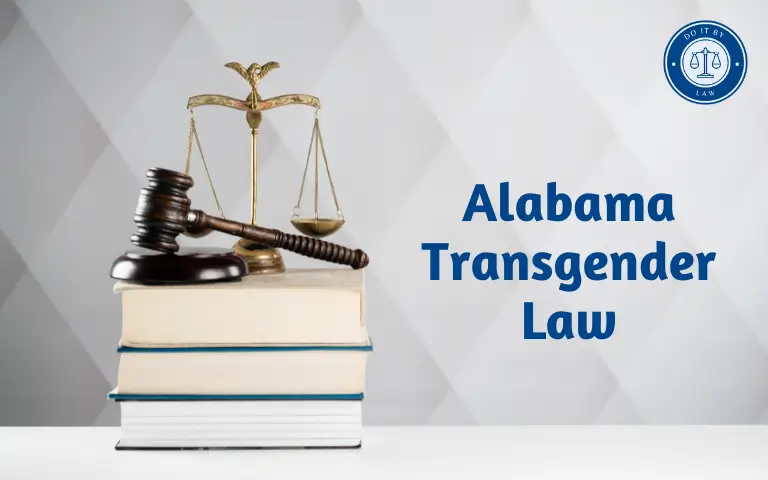Alabama Custody Laws: What You Need to Know
Custody laws in Alabama determine how child custody is decided between parents during separation or divorce. Alabama custody laws outline factors like the child’s best interests and parental fitness that courts use to make custody determinations. Understanding Alabama’s custody laws can help you navigate this complex process.
Alabama custody law starts with the presumption that both parents have equal rights regarding custody. However, courts make custody decisions based on the child’s best interests above all else. Alabama uses the “best interests of the child” standard to determine physical and legal custody.
When Alabama Custody Laws Were Enacted and Why They Exist
Alabama first enacted laws governing child custody in the late 1800s. The early laws established that fathers had a right to custody of their children. This aligned with the traditional view at the time that men were head of the household.
Over time, Alabama custody laws evolved to consider the child’s interests and welfare in custody decisions. Key developments include:
- 1851 – Alabama passed one of the first custody laws giving fathers custodial rights.
- 1907 – The state recognized mothers could have custody rights.
- 1971 – Alabama passed the Uniform Marriage and Divorce Act, requiring courts to consider the child’s best interests.
- 1983 – Alabama allowed joint custody arrangements.
The impetus behind updating Alabama’s custody laws was the need to promote more equitable treatment of both parents. The laws evolved as cultural views on parenting roles changed. Ensuring custody arrangements serve the child’s interests and welfare became the top priority.
Who Alabama Custody Laws Apply To
Alabama’s custody statutes apply in the following situations:
- Divorcing parents determine custody arrangements. This includes married, separated, and unmarried parents.
- Parents modifying existing custody orders due to changing circumstances.
- Third-party custody cases involving relatives or others seeking custody.
- Child welfare cases where children are removed from parents’ custody.
The laws apply to all parents living in Alabama. Courts follow custody laws from the child’s home state. For multi-state custody disputes, Alabama uses the Uniform Child Custody Jurisdiction and Enforcement Act.
Key Provisions of Alabama Custody Laws
Alabama custody laws include key requirements and provisions courts must follow to issue custody orders. These include:
Best Interests of the Child Standard
Courts must choose custody arrangements that serve the child’s physical, emotional, and other interests. Factors considered include:
- Child’s safety and wellbeing
- Parenting abilities
- Child’s relationships with parents, siblings, etc.
- Child’s adjustment to home, school, community
- Preferences of older children
- History of family abuse, substance abuse, criminal activity
- Other factors relevant to the child’s interests
Joint Legal Custody in Alabama:
In Alabama, joint legal custody alabama grants both parents equal rights and responsibilities for making major decisions concerning their child. These decisions typically include:
- Education: Choosing schools, extracurricular activities, and educational philosophies.
- Healthcare: Selecting doctors, dentists, and authorizing medical treatments.
- Religion: Participating in religious activities and raising the child according to specific religious beliefs.
- Civic, Cultural, and Athletic Activities: Deciding what extracurricular activities the child will participate in.
- Passport issuance: Making decisions about international travel.
There are several aspects to consider regarding joint legal custody in Alabama:
- Decision-making arrangement: Parents can either share all decision-making equally or divide certain areas of responsibility, with each parent having sole authority over specific decisions.
- Court involvement: Joint legal custody can be agreed upon by the parents outside of court or awarded by the court as part of a custody agreement.
- Importance of communication: Parents with joint legal custody must be able to communicate effectively and work together in the best interests of the child. This requires mutual respect and a willingness to compromise.
- Impact on physical custody: Joint Legal Custody alabama does not necessarily mean joint physical custody (equal or similar living arrangements). Parents can have separate living arrangements with the child spending time with each parent.
alabama custody laws for unmarried parents
Alabama custody laws for unmarried parents differ slightly from those for married parents, focusing primarily on the best interests of the child. Here’s a breakdown:
Presumption of Joint Custody:
- Alabama law presumes that joint custody is in the best interests of the child, regardless of the parents’ marital status. This means the court will first consider joint legal and/or physical custody before awarding sole custody to one parent.
Factors Considered:
The court bases its decision under alabama custody laws for unmarried parents on several factors, including:
- The child’s age, needs, and welfare.
- The physical and mental health of each parent.
- Each parent’s ability to care for the child.
- The child’s relationship with each parent.
- The stability and consistency of each parent’s home environment.
- Each parent’s history of child abuse or neglect.
- The parent’s willingness to cooperate with the other parent.
Physical Custody Arrangements for Unmarried Parents:
- Joint physical custody: Parents share a significant amount of parenting time with the child, often through a defined schedule.
- Sole physical custody: One parent lives with the child full-time, while the other parent has visitation rights.
Legal Custody Arrangements for Unmarried Parents:
- Joint legal custody: Both parents have equal decision-making powers regarding the child’s upbringing, including education, healthcare, and religion.
- Sole legal custody: One parent has the sole authority to make these major decisions.
Additional Points:
- Paternity must be established before the father can seek custody or visitation rights.
- Parents can create a parenting plan outlining custody arrangements, which the court may approve.
- Mediation or arbitration can be helpful in resolving custody disputes outside of court.
- Seeking legal advice from a family law attorney is recommended for navigating complex custody issues.
Modifying Custody Orders In Alabama
Here’s a guide to modifying custody orders in Alabama:
Grounds for Modification:
- McLendon Standard: The court will consider a modification if there has been a “material change in circumstances” that significantly affects the child’s best interests. Examples include:
- Major changes in a parent’s living situation, employment, or health.
- Relocating to a different state.
- Substance abuse or domestic violence issues.
- A child’s developmental or emotional needs changing.
Procedure:
- File a Petition: The parent seeking modification files a “Petition to Modify Custody” in the same court that issued the original order.
- Serve the Petition: The other parent must be served with the petition and have an opportunity to respond.
- Mediation: Courts often encourage mediation to resolve disputes before a full hearing.
- Hearing: If mediation fails, a hearing is held where both parents present evidence and arguments.
- Court Decision: The judge decides whether to modify the order based on the child’s best interests.
Additional Information:
- No Automatic Right to Modification: The court isn’t obligated to grant a modification request.
- Burden of Proof: The parent seeking modification must prove the necessity for change.
- Seeking Legal Advice: It’s highly recommended to consult a family law attorney for guidance and representation.
Penalties for Violating Alabama Custody Laws
Various penalties apply when parents violate Alabama custody laws:
Contempt of Court: The most common penalty for violating a custody order is contempt of court. This can result in:
- Fines: Up to $500 per violation, and potentially higher for repeated or severe violations.
- Jail time: Up to 6 months for a single violation, and potentially longer for repeated or severe violations.
- Restriction of visitation rights: The court may temporarily or permanently restrict the offending parent’s visitation rights with the child.
- Mandatory counseling or parenting classes: The court may order the offending parent to attend counseling or parenting classes to address the issues that led to the violation.
- Requiring a bond: The court may require the offending parent to post a bond to ensure future compliance with the custody order.
Interference with Custody: In more serious cases, violating a custody order can lead to criminal charges of interference with custody. This is a Class C felony, punishable by:
- Up to 10 years in prison.
- Fines of up to $15,000.
Specific Violations and Potential Consequences:
- Refusing to grant visitation: Contempt of court, fines, jail time, change of custody.
- Denying communication with the other parent: Contempt of court, fines, jail time, modification of custody arrangement.
- Withholding the child from the other parent: Contempt of court, fines, jail time, change of custody, potential criminal charges.
- Relocating without court approval: Contempt of court, fines, jail time, order to return the child, modification of custody arrangement.
- Engaging in parental alienation: Contempt of court, fines, counseling, parenting classes, modification of custody arrangement.
Additional Factors Affecting Penalties:
- Severity of the violation: The severity of the violation will influence the severity of the penalties.
- Past violations: A history of violating custody orders can lead to harsher penalties.
- Best interests of the child: The court’s primary concern is always the best interests of the child. The penalties imposed will reflect this.
Recent and Proposed Changes to Alabama Custody Laws
Alabama’s custody laws see occasional changes and proposed amendments as concepts of family and childrearing evolve. Recent updates include:
- 2006 – Added “friendly parent” provision favoring parents cooperative with co-parenting.
- 2009 – Made it easier for parents to voluntarily agree to modify custody.
- 2012 – Enacted law regarding custody transfers during military deployment.
- 2014 – Legislation was introduced unsuccessfully to require equal custody consideration.
- 2016 – Law passed allowing parents to revoke paternity affidavits within 60 days.
- 2017 – The Bill proposed creating a legal presumption of equal physical custody, but failed.
Ongoing debates continue over possibly enacting a legal presumption favoring joint custody. However, Alabama law still focuses on case-by-case determination of custody based on the child’s interests.
Controversies and Debates Around Alabama Custody Laws
Alabama’s custody laws generate debates similar to other states. Major areas of controversy include:
- Whether there should be a legal preference for joint custody – Alabama law treats joint custody on a case-by-case basis currently.
- How relocation requests should be handled when one parent wants to move.
- How to address child abuse, domestic violence, and other safety issues in custody decisions.
- Ensuring custody laws and decisions are gender-neutral and fair to both fathers and mothers.
- Handling complex custody issues for LGBTQ parents.
- Determining when parents’ sexual conduct, even if nontraditional, should affect custody.
Ongoing legislative proposals, court cases, and advocacy campaigns shape the discussion around these issues. The debates weigh parents’ rights against the State’s role in protecting children’s welfare.
Conclusion and Main Takeaways
In summary, Alabama’s custody laws focus on serving the child’s interests and welfare based on a range of factors. While parents have equal constitutional rights, custody is determined case-by-case rather than any mandatory presumption. Joint custody arrangements are common for cooperative parents.
Key takeaways about Alabama custody laws include:
- Alabama uses the “best interests of the child” standard for custody decisions.
- Various forms of joint custody are permitted when approved by the court.
- Parents seeking custody changes must show substantially changed circumstances.
- Alabama laws and courts aim for custody arrangements that support the child’s needs and well-being.
- Ongoing debates continue around issues like joint custody preferences, relocation requests, and handling safety issues.
Determining child custody is a complex process with lifelong implications. Understanding Alabama’s custody laws and processes allows parents to navigate this terrain and represent their children’s interests effectively.







